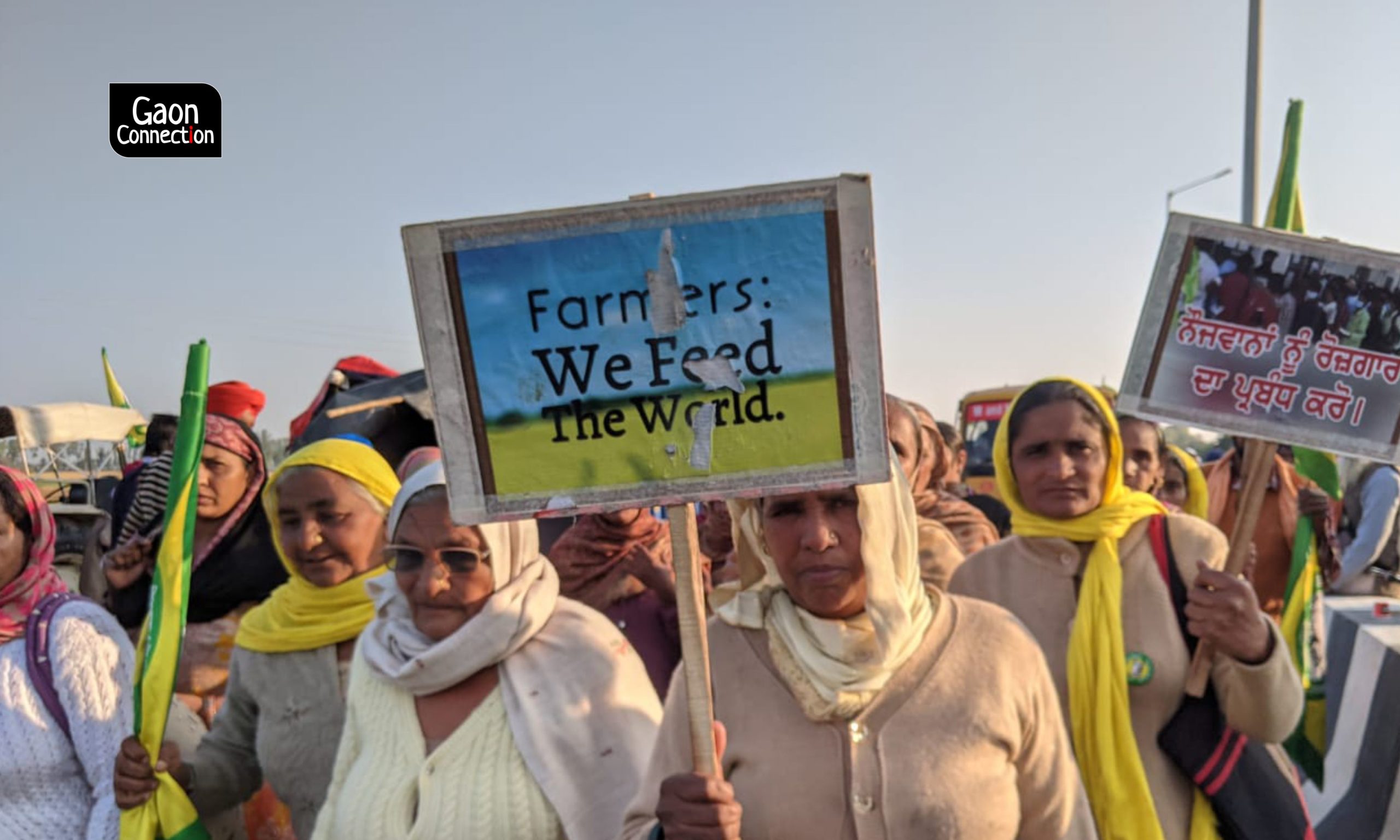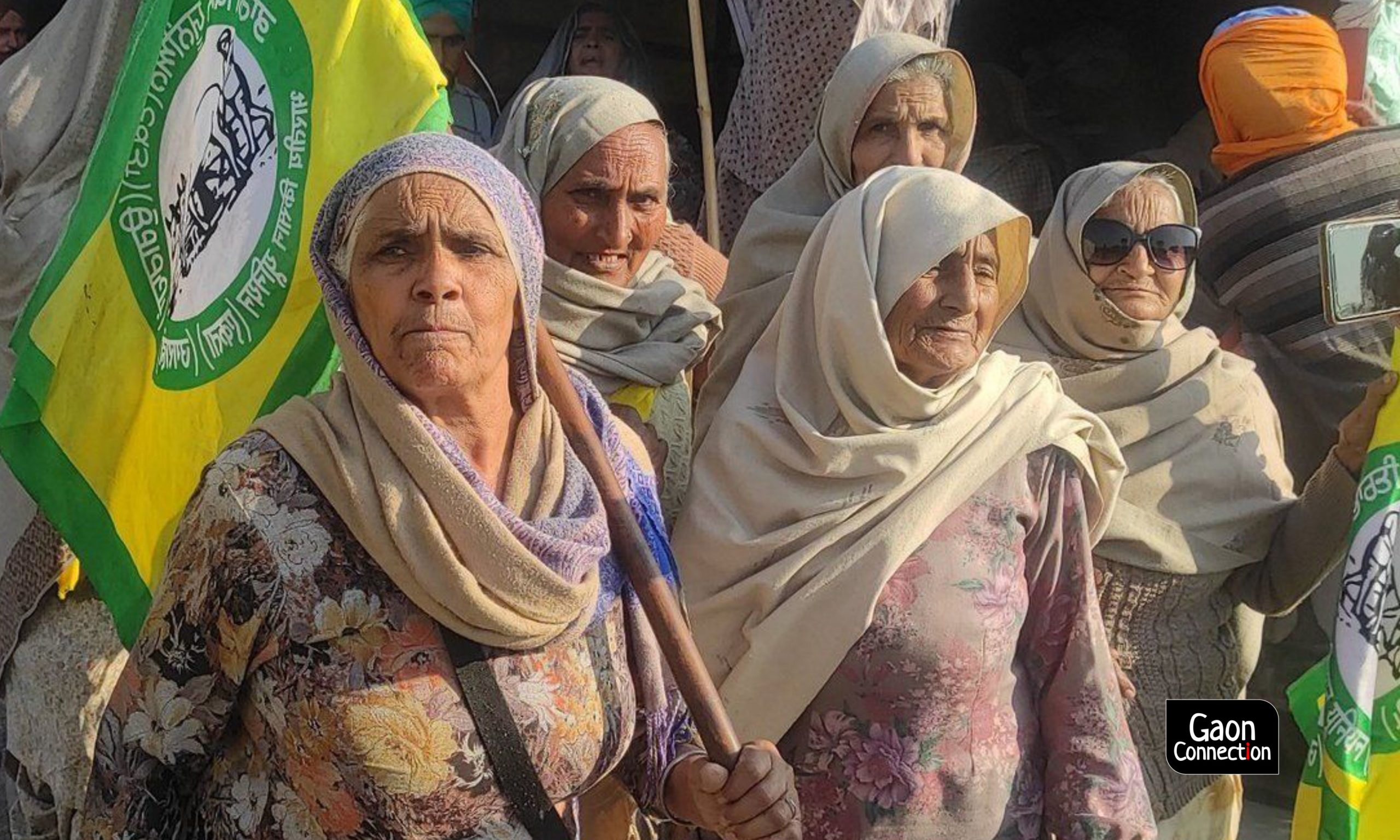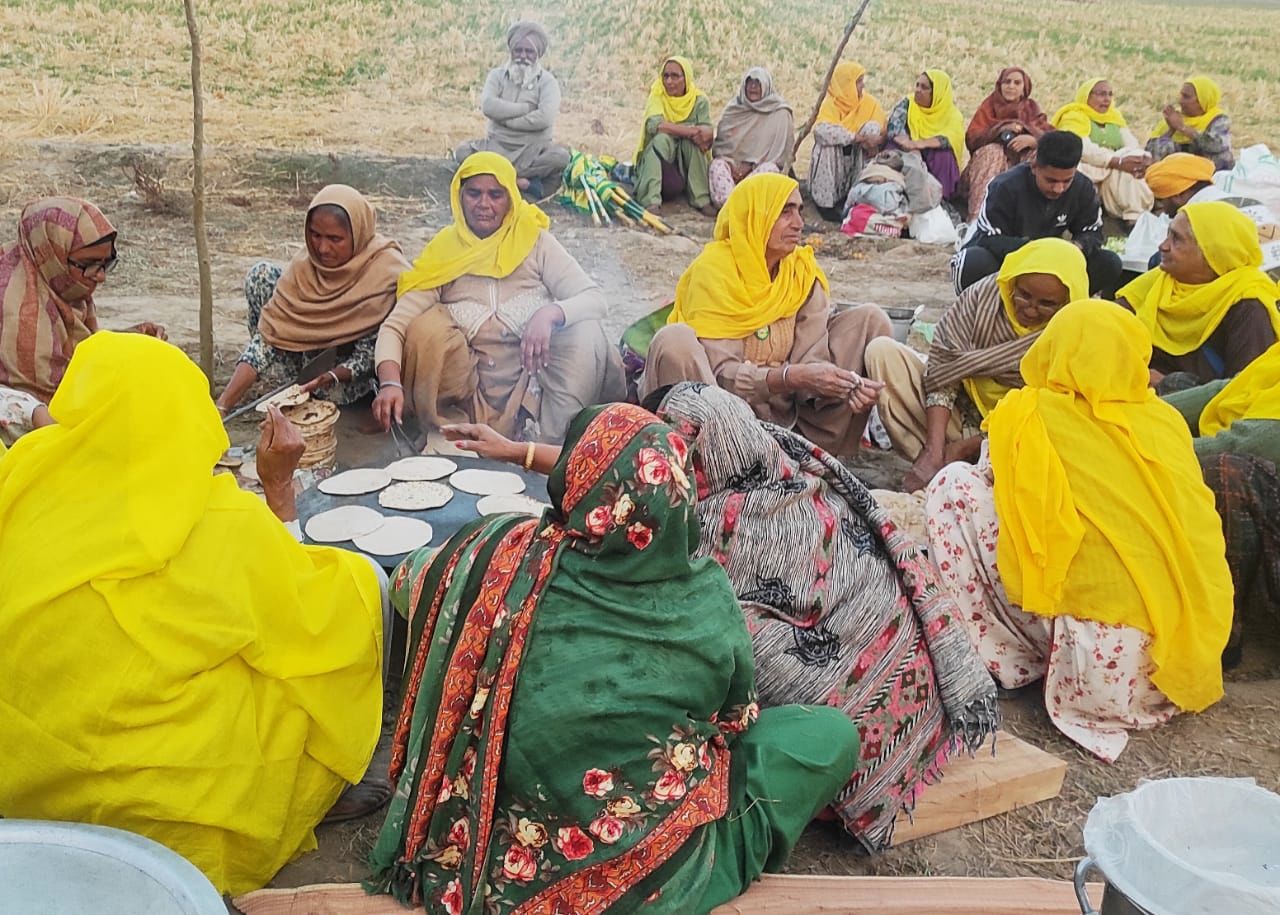We will starve but not go back without the laws being repealed, say protesting women farmers
Women farmers, whose contribution to economic growth is largely undocumented, have kept the protests against the three new agri laws going. They cook by the roadside and march alongside the men, determined to be heard.


Photo: Gaon Connection
Sangrur, Punjab
Sarjit Kaur, 68, and Baljit Kaur, 62, are sitting on a tractor trolley, two of the many thousands of farmers from Punjab who are on their way to Delhi, but stuck in Haryana. Sarjit, from Hari Burj in Mansa district, is clear that she will do all she can to ensure “not a single dark law passed by the government exists”. “We are taking our entire families, even our grandchildren, to Delhi and unless the government listens to our demands, we shall not return,” she told Gaon Connection.
Baljit shares her opinion. “We have come away after padlocking our homes, and will not return to Punjab unless the Modi government withdraws its laws,” she told the Gaon Connection team that is accompanying the protesting farmers on their Dilli Chalo march from November 26 to 28. “We will remain in Delhi till then and won’t return emptyhanded,” she added.

Farmers Sarjit and Baljit are among the large number of women, many of them aged between 60 and 70 years, who have taken to the roads in solidarity with the thousands of farmers protesting the three new agricultural laws. Some of them have already reached Delhi, while others have stationed themselves with their children and grandchildren in various parts of Haryana and Punjab. After much to and fro, some farmers were finally allowed by Delhi Police to stage a peaceful protest at the Nirankari Maidan in Burari, north Delhi.
The farmers defied barricades, water cannons, tear gas shells and dug-up trenches on highways to enter Delhi. The women farmers, whose contribution to the nation’s GDP or role in economic growth goes largely undocumented, but for fleeting references in popular literature, march on the streets holding banners and placards and also cook rotis on the highways during meal breaks. As per the 2011 Census, more than 60 million women farmers and agricultural labourers work across the country. They grow the food that sustains people. And, while a man works for 1,212 hours a year in the fields, the female farmer works for 3,485 hours.

Does Baljit think she will be able to make her way to Delhi despite the barricades? “Yes, we will break down every barrier. We are not among those who retreat. The government pardons the debts of the mighty but does not waive off the debts of poor farmers. The government seeks to take away from us whatever little land we are left with,” she told Gaon Connection.
These women farmers are in protest against the three agricultural laws of the government — The Farmers’ Produce Trade and Commerce (Promotion and Facilitation) Act, 2020, which seeks to give freedom to farmers to sell their produce outside of the notified APMC market yards; The Farmers (Empowerment and Protection) Agreement of Price Assurance and Farm Services Act, 2020, which gives farmers the right to enter into a contract with agribusiness firms, processors, wholesalers, exporters or large retailers for the sale of future farming produce at a pre-agreed price; and The Essential Commodities (Amendment) Act, 2020, which is meant to remove commodities such as cereals, pulses, oilseeds, onion and potato from the list of essential commodities and do away with the imposition of stock holding limits.
They believe contract farming will harm them, and they do not want cultivation on their land to be undertaken by someone else. “Our demands are not unjustified,” asserted Amarjeet Kaur, another protesting farmer. “The contract farming act will take away our right to our land, making powerful people occupy it. We already have small parcels of land, and if even those are handed over to someone else, what will we eat? We live off our fields. Our children are not very educated. What will they do?” she asked. Amarjeet sounds angry and anguishes in turn, seeing the barricades. “We are equipped and will cook rotis till we can. We will starve but not go back. We cannot give up our land,” she said.

